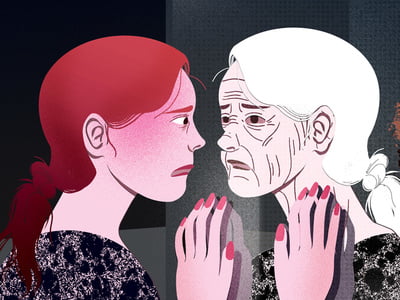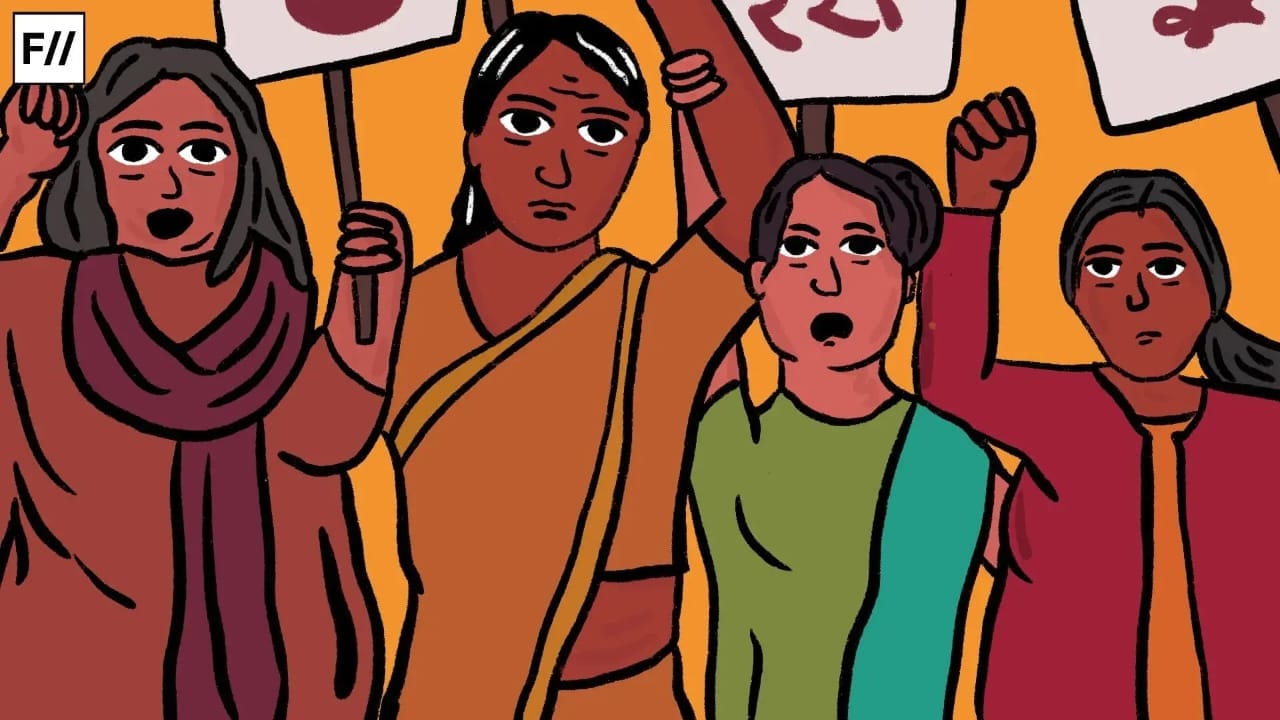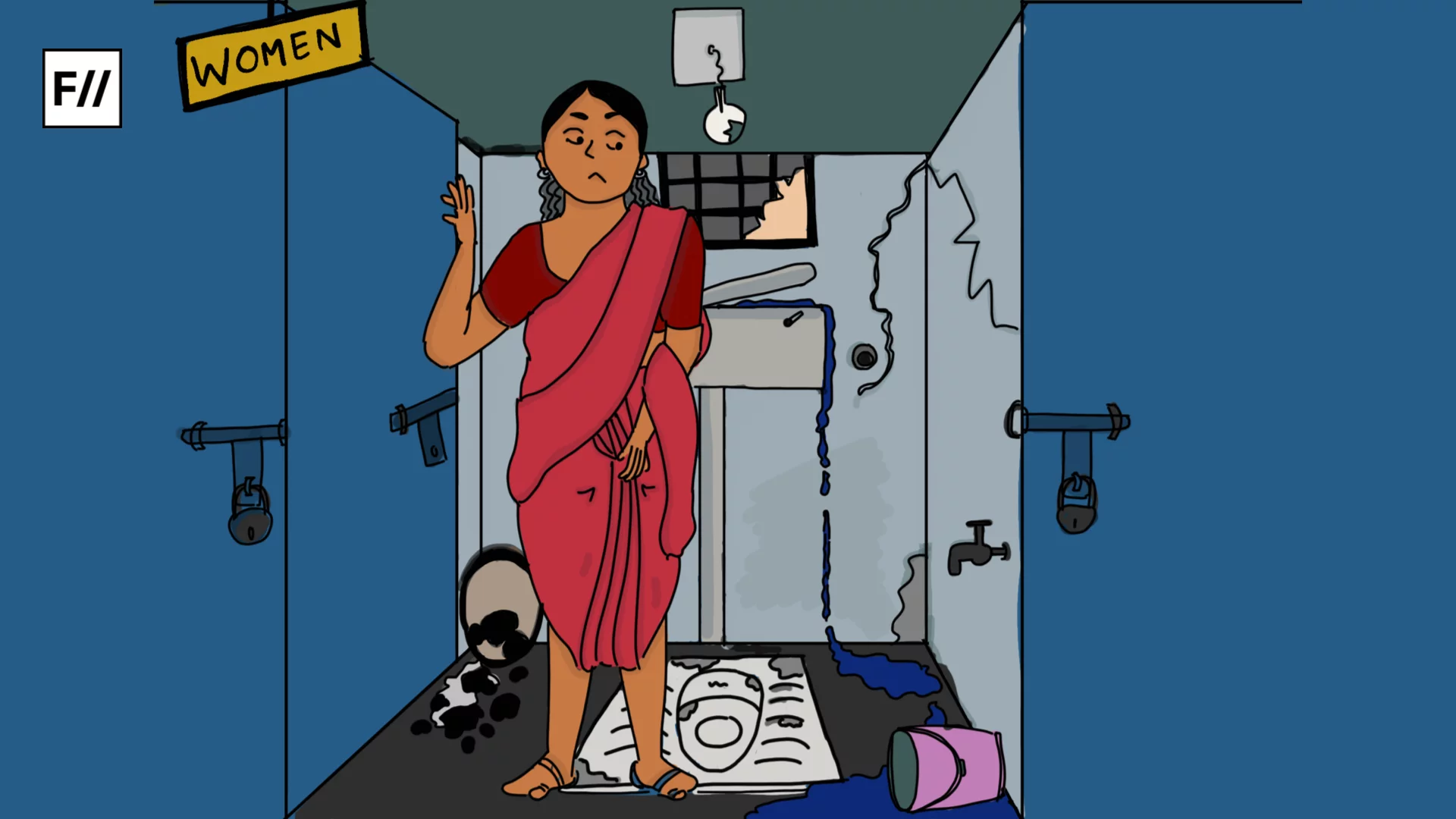Editor’s Note: This month, that is July 2020, FII’s #MoodOfTheMonth is Feminism And Body Image, where we invite various articles about the diverse range of experiences which we often confront, with respect to our bodies in private or public spaces, or both. If you’d like to share your article, email us at pragya@feminisminindia.com.
It all starts with, “You should never ask a woman her age!”
Why not?
Mortality is inevitable and so is each passing phase of life including ageing. The most unfortunate event is that the fine lines do not just appear on a woman’s face; it appears in her life and her identity. ‘Dark spots’ overshadow the confidence and self esteem, most women have built throughout their lives.
Each woman starts developing signs of ageing post her menopause and her body takes on different colours. Signs of ageing are as natural as puberty but the difference lies in the societal perceptions. The internalised notion of unattractiveness makes women lean more towards keeping her youth intact at any cost.
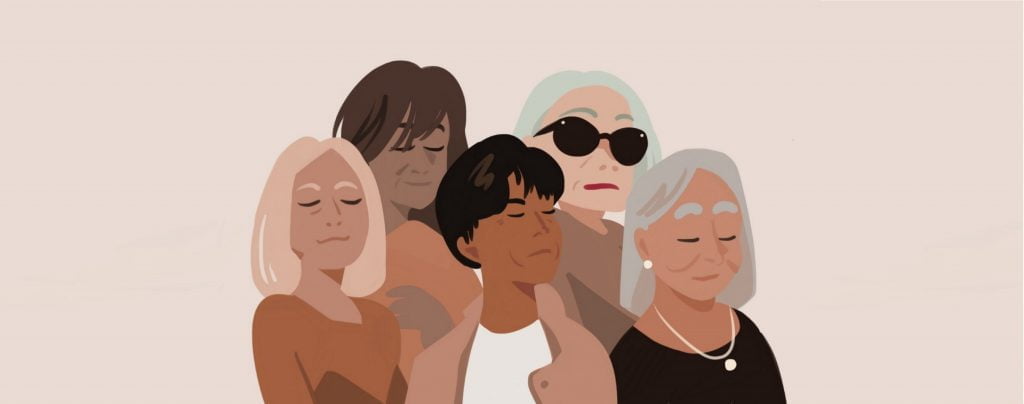
How and why is that harmful—is the real question here.
The idea of youth and beauty is not about choice especially in India—it is directly related to the pressures created by the society. Age-shaming is that part of body-shaming we ignore, or perhaps see as the most natural process without questioning it much. Let us discuss the facets of age-shaming.
- The perfect ‘age’ for getting married.
Let’s not go into the debate of sexual liberty and biological processes that affect marriage. The primary concern that any woman has to face is that looking ‘aged’ can be a great hindrance while finding a perfect match. The marital age is between 21 to 30 because that is when the facial features are ‘ripe’ and ‘glowing’.
An ‘aged’ bride is unattractive and will not be able to keep the romantic partner happy—is the common notion that drives women to marry, and has been probably passed on as a legacy since generations. The idea of lust is linked with age and women are taught to be pretty/sensual in the conventional way to lead a healthy marital life. The middle aged woman turns to self blame in case of infidelity because of unattractiveness and growing signs of ageing. There is a constant compulsion to be ‘young and beautiful’ that surpasses the need for accepting the body as it is.
The idea of lust is linked with age and women are taught to be pretty/sensual in the conventional way to lead a healthy marital life. The middle aged woman turns to self blame in case of infidelity because of unattractiveness and growing signs of ageing. There is a constant compulsion to be ‘young and beautiful’ that surpasses the need for accepting the body as it is.
- The need for being ‘young’ and ‘glamorous’
The pressure of remaining young, flawless and beautiful dominates women, be it in her professional or personal life. With the growing pressure of looking beautiful on social media, every human is leading the life of a celebrity and facing the pressures of it too. A survey states that more than 25% of middle aged women download face filters and beauty applications to look beautiful and young. Research done in Canada states that woman in the post-menopause period faces immense drop in self esteem and confidence due to the growing signs of ageing. The experiment saw most women gaining confidence post their cosmetic surgeries. The compulsions on being the ‘young mom’ to the ‘young and charming leader’, the pressure of age dominates each of these aspects. You can even say that one of the major mid-life crisis for women is their dissatisfaction with the body.
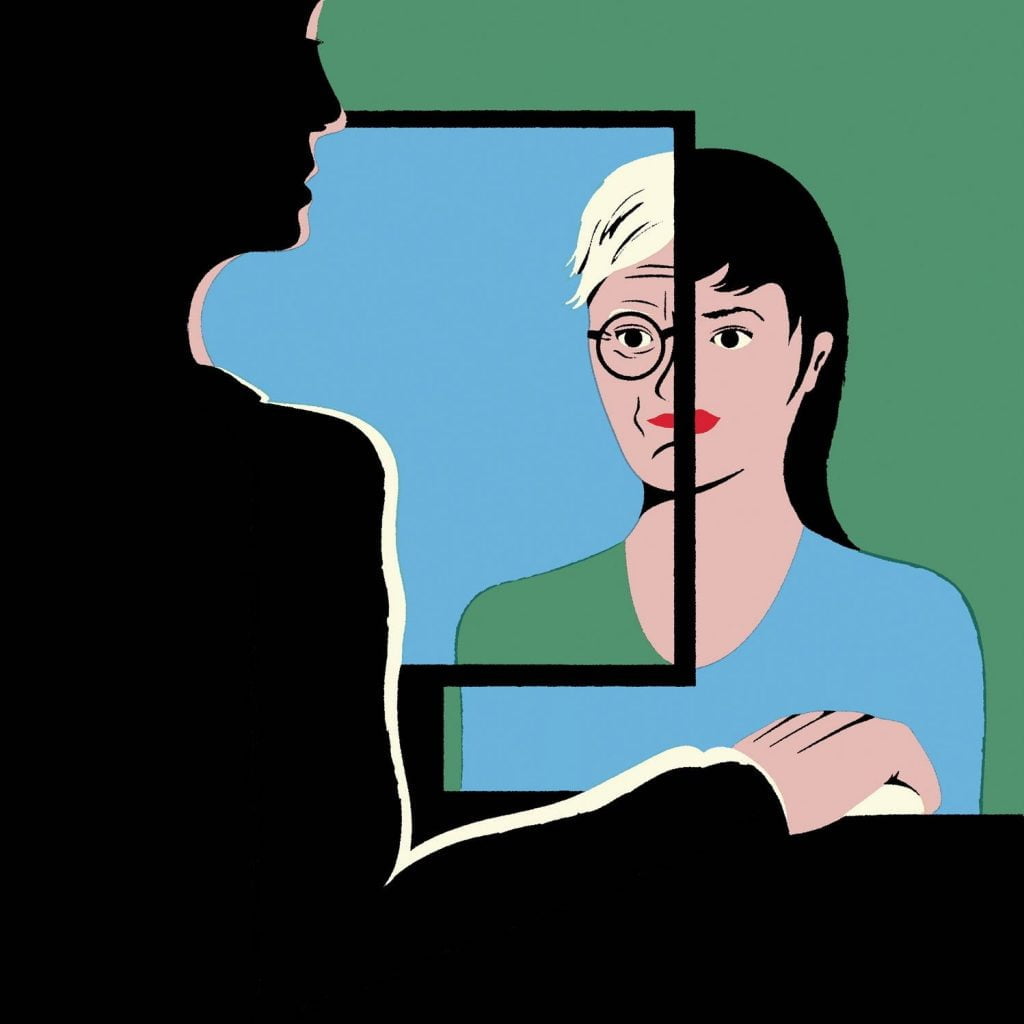
- The rise in anti-ageing cosmetic products and cosmeceuticals
Just log on to any beauty shopping application and look at the number of women who have purchased anti-ageing products. The results and comments might just shock you. These sites are live examples of how physical appearance affects the confidence and self-image of women. There are complaints that the products do not give results in a month or two. The cosmetic companies are even launching products to remove ageing signs in a week! For women, the side effects and the chemicals are not the concern but the effects of ageing are. The highly expensive cosmeceutical products are purchased by middle class women awaiting surprising results. Age shaming, especially in urban areas, leads to anxiety and depression in most women when they fail to get promising results from the beauty industry.
The idea of self acceptance should be embraced at every age. There is a fine line between maintaining a healthy body and skin, and the obsessive need to keep the ‘youthful’ body intact over the years. Age-shaming is no different from body shaming. Just as the skin colour belongs to us, our wrinkles belong to us too.
The most promising achievements and experiences are overshadowed when society sees a woman ageing. The immediate comments are, “She is an oldie now!”, “The dresses don’t suit her age”, “She should not wear such bright lip colour at this age,” etc. The women included here are the ones we meet every day. The mothers who say, “This is not my age anymore to wear dresses…” to sisters who avoid school meetings of her daughter saying, “My grey hair will make me look like a grandmother”, most women fail to accept her age in some way or the other. We can say, ‘Age is just a number!’ but we feel more like, ‘Oh! My god, I don’t want to look like an old hag.’
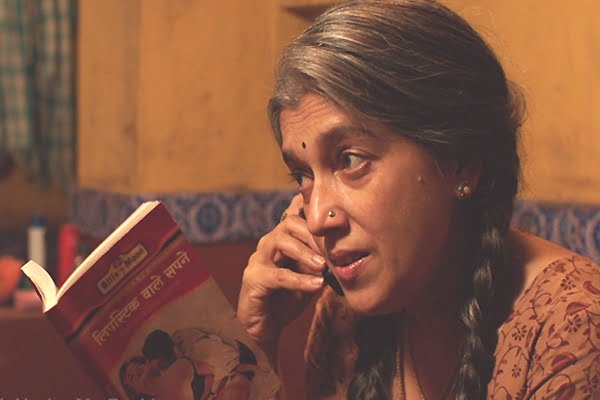
Also read: Where Does Ageism And Sexism Meet In India?
The idea of self acceptance should be embraced at every age. There is a fine line between maintaining a healthy body and skin, and the obsessive need to keep the ‘youthful’ body intact over the years. Age-shaming is no different from body shaming. Just as the skin colour belongs to us, our wrinkles belong to us too. Do not let the oppressive societal norms harm your beauty, irrespective of age, colour, or weight.
Works Cited:
Emili is a complete bibliophile, an artist and a writer. She believes that we need to observe the most seemingly insignificant things to bring about significant changes. Writing is her instrument and art is her voice, through these she believes, she can make myself heard to the millions who have decided to close their ears to opinions that matter. You can find her on LinkedIn.
Featured Image Source: Dribble
